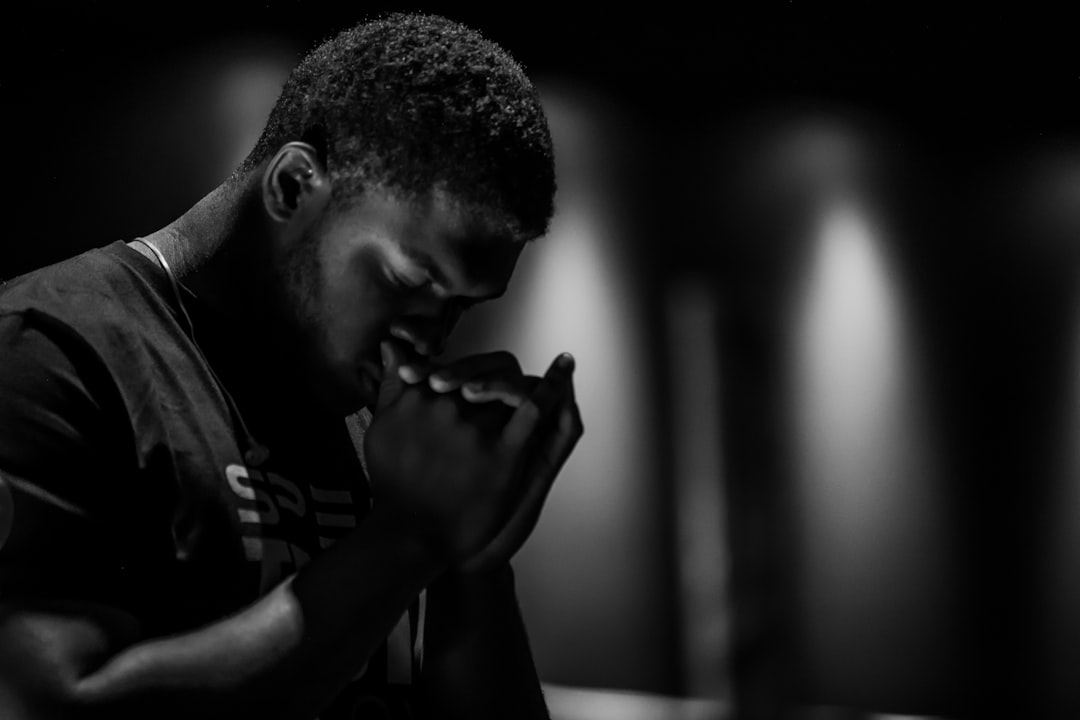Fasting and prayer are two powerful spiritual practices that have been at the heart of many faiths for centuries. They provide an opportunity for reflection, connection, and renewal. In this journey, we will explore “The Power of Fasting and Prayer: A 21-Day Walk with Godverse Challenge.” This challenge encourages us to deepen our relationship with God through a structured approach to fasting and prayer. As we embark on this 21-day journey, we will discover the transformative impact of dedicating time to seek the Divine, listen for guidance, and find inner peace. Ultimately, through this Christian 21-day fasting and prayer plan, we can cultivate a more profound sense of purpose and connection to our faith.
Main Points
Table of Content
- 1 Understanding the Spiritual Significance of Fasting and Prayer
- 2 The Science Behind Fasting: Health Benefits for the Body and Mind
- 3 How to Prepare for a 21-Day Fasting Journey with God
- 4 Daily Prayer Practices to Enhance Your Fasting Experience
- 5 Transformative Testimonies: Real-Life Experiences from Fasting and Prayer
- 6 Setting Intentions: What to Focus on During Your 21-Day Challenge
- 7 The Role of Scripture: Integrating God’s Word in Your Fasting Journey
- 8 Overcoming Challenges: Tips for Staying Committed Throughout the Challenge
- 9 Building Community: Engaging with Others on Your Fasting and Prayer Journey
- 10 Post-Fast Reflections: How to Sustain Spiritual Growth Beyond 21 Days
- 11 Conclusion
- 12 Frequently Asked Questions
- 12.1 What is a 21-day fasting and prayer plan?
- 12.2 What types of fasting can I do during this period?
- 12.3 Can I fast if I have health concerns?
- 12.4 How should I prepare for a 21-day fast?
- 12.5 What should I do if I feel weak or ill during the fast?
- 12.6 How can I maintain focus on prayer during the fast?
- 12.7 What should I do after completing the 21-day fast?
- 12.8 Can I participate in the fast with a group?
- 12.9 What if I miss a day of fasting?
- 12.10 How can I incorporate scripture into my fasting and prayer plan?
- Understanding the significance of fasting and prayer in the Christian tradition.
- How to implement the Christian 21-day fasting and prayer plan effectively.
- Personal testimonies of transformation through fasting and prayer.
- Practical tips for maintaining motivation throughout the challenge.
Related content:
The Role of Worship in Walking Closer with God
How to Hear God’s Voice: 5 Signs You’re on the Right Path
Daily Devotional Routine: Transform Your Mornings with God
Why Fasting Matters: A Biblical Perspective | walkwithgodverse”
Understanding the Spiritual Significance of Fasting and Prayer
Fasting and prayer serve as profound avenues for spiritual growth and connection with the divine. These practices invite individuals to reassess their priorities while fostering a deeper relationship with God. Engaging in fasting can shift one’s focus inward, prompting reflection and awareness of one’s spiritual needs. Similarly, prayer establishes a dialogue with the divine, creating space for guidance and clarity. When combined, these acts amplify their effects, allowing for a holistic approach to spiritual well-being. The significance lies not merely in abstaining from food or speaking to God, but in experiencing the transformative journey that ensues. Here are some key aspects that highlight their importance:
- Self-Discipline: Fasting instills a sense of control over physical desires.
- Connection: Prayer cultivates a profound sense of communion with God.
- Clarity: Together, they provide insight into one’s path and purpose.
Embracing these practices can guide believers on their journey, echoing the essence of “Biblical Time Management“. Moreover, they enrich the spiritual landscape, allowing for a deeper exploration of what it truly means to walk with God in everyday life.

The Science Behind Fasting: Health Benefits for the Body and Mind
Fasting has garnered attention due to its multifaceted benefits for both physical health and mental clarity. When we abstain from food for a defined period, the body enters a state of autophagy, a natural process where cells recycle waste material and remove dysfunctional proteins. This rejuvenation can potentially lead to a stronger immune system.
On the mental front, fasting may enhance cognitive function. Research suggests that periods without food lead to increased brain-derived neurotrophic factor (BDNF), a protein linked with improved learning and memory. However, the precise impact varies among individuals, as some may experience mental fatigue instead of clarity.
Moreover, while fasting offers advantages, it isn’t universally suitable. For instance, those with specific health conditions should consult healthcare professionals. Therefore, understanding the implications of fasting is crucial. Balancing individual needs with the potential benefits can pave the way for a more health-conscious lifestyle.
| Health Benefits | Mental Benefits |
|---|---|
| Cellular Rejuvenation | Enhanced Cognitive Function |
| Weight Management | Increased Focus |
In conclusion, fasting offers profound insights into well-being for the body and mind. Ultimately, it is important to weigh the benefits against potential drawbacks. This leads to a more informed approach towards dietary choices and Biblical Time Management.

How to Prepare for a 21-Day Fasting Journey with God
Embarking on a 21-day fasting journey with God requires both spiritual and practical preparation. First and foremost, take time to reflect on your purpose for fasting. This period should serve as an opportunity for personal growth and deeper connection with the divine. Set specific goals to align your intentions with God’s will. Next, consider the logistics of your fast. What type of fasting will you undertake? Whether it’s a complete fast or a Daniel fast, clarity in your choice is essential. It’s important to plan your meals thoughtfully, ensuring you have nutritious options that satisfy your physical needs without compromising your spiritual intention.
Daily Commitment and Accountability
Additionally, enlist a friend or support group to journey alongside you. Sharing your experiences can greatly enhance your accountability. Devote time each day to prayer and scripture reading, allowing God’s presence to guide you through this transformative experience. Remember, fasting is not just about abstaining from food; it’s about deepening your relationship with Him through biblical insights and reflections.
As you prepare, trust that this journey will bring you closer to God in ways you’ve never imagined.

Daily Prayer Practices to Enhance Your Fasting Experience
Fasting serves as a profound spiritual practice, and when combined with daily prayers, it can elevate your experience to new dimensions. By incorporating intentional prayer into your fasting regimen, you create a sacred space for reflection and growth. Here are some enriching daily prayer practices to help you navigate your fasting journey.
- Morning Devotion: Start your day with dedicated time for prayer. This practice sets a spiritual tone and invites clarity and strength.
- Midday Mindfulness: During the day, take brief moments to pause and pray. Even a few minutes can refocus your mind and refresh your spirit.
- Evening Gratitude: Conclude your day by reflecting on your fasting experience. Acknowledge any challenges and express gratitude for the lessons learned.
These practices not only deepen your fasting experience but also cultivate a greater awareness of your spiritual journey. As you engage with prayer, remember it can act as your anchor throughout the fast. Therefore, embrace this holistic approach and watch as it transforms your heart and mind.
Transformative Testimonies: Real-Life Experiences from Fasting and Prayer
Fasting and prayer have long been regarded as powerful practices that yield profound transformations in individuals’ lives. Many who have embraced these spiritual disciplines recount experiences that redefine their faith and purpose. For instance, one individual shared how a prolonged fast unveiled inner turmoil, leading to unexpected revelations about their life’s direction. They described this period as a journey that deepened their connection with the divine.
Another testimony highlighted a remarkable healing that occurred after dedicating time to prayer and fasting. Initially skeptical, the individual noted that the combination of focused prayer and abstinence encouraged a remarkable sense of clarity and peace. This testimony underscores how the act of fasting, accompanied by sincere prayer, can unlock doors to spiritual and emotional healing.
These stories illustrate that fasting and prayer are not just rituals; they are gateways to deeper understanding and relationship with God. Through these transformative experiences, participants often find a renewed sense of purpose and direction in their lives.
Enhanced Spiritual Awareness
Ultimately, fasting and prayer can cultivate an enriched spiritual awareness, guiding individuals on their paths. As one participant noted, focusing on their spiritual needs through fasting allowed them to align their priorities with a higher calling. This process intricately intertwines with the principles of Biblical Time Management, helping individuals discern their responsibilities amidst life’s distractions.
Setting Intentions: What to Focus on During Your 21-Day Challenge
Embarking on a 21-day challenge requires clear intentions, as these goals will act as your guiding stars. First, consider what you genuinely wish to achieve. Reflect on both personal and professional aspirations. For instance, you might focus on cultivating better habits or enhancing your well-being. Remember, clarity in your objectives significantly boosts your chances of success.
Next, think about how you will measure progress. Setting milestones is crucial; they transform abstract goals into tangible achievements. Create a vision board or a daily journal to track these reflections. This practice makes the process interactive and engaging.
“Effective planning leads to remarkable outcomes.”
Lastly, ensure your intentions are aligned with your core values. This alignment nurtures motivation and commitment. It’s essential to stay flexible; your goals may evolve as you progress. Listen to your inner voice, for it often reveals deeper insights that help refine your path.
The Role of Scripture: Integrating God’s Word in Your Fasting Journey
Fasting is a profound spiritual practice that invites you closer to God. However, merely abstaining from food isn’t the complete essence of fasting; integrating Scripture into this journey is vital. It nourishes your soul while you fast, anchoring your heart in divine truth.
As you undertake this sacred discipline, consider the following steps to weave God’s Word into your experience:
- Set Intentions: Begin by defining your purpose for fasting. Whether seeking clarity or strength, focusing on God’s promises can guide your intentions.
- Daily Scripture Reading: Dedicate time each day to read and reflect on pertinent verses. This practice keeps your mind aligned with God’s will, particularly during challenging moments.
- Prayerful Meditation: Engage in prayer that incorporates your selected scriptures. Meditating on these words will deepen your understanding and connection to God amid your fasting.
Remember, integrating Scripture enriches your fasting journey, making it a transformative experience. Embrace it fully, allowing God’s Word to guide your reflections and prayers. This sacred rhythm can lead to greater spiritual insights and a stronger relationship with the divine.
Overcoming Challenges: Tips for Staying Committed Throughout the Challenge
Commitment during challenges is no easy task. Life often throws unexpected hurdles our way. However, by adopting a focused mindset and setting clear, achievable goals, we can enhance our capacity to stay dedicated. One effective approach is to break down the challenge into smaller tasks. This not only makes the process feel manageable but also provides a sense of accomplishment as you complete each step.
Additionally, cultivating a support system can offer motivation. Surrounding yourself with like-minded individuals or even joining a community related to your challenge can provide encouragement. Sharing your experiences fosters a sense of accountability, thereby strengthening your commitment. Moreover, celebrating small victories is crucial; it reminds you of the progress you are making.
Key Strategies to Maintain Focus
| Strategy | Description |
|---|---|
| Biblical Time Management | Prioritize tasks based on values and importance. |
| Break It Down | Dividing your challenge into smaller parts can ease stress. |
| Celebrate Success | Acknowledging progress boosts motivation. |
In conclusion, overcoming challenges requires not just willpower but also strategic planning. Remember, every little step matters, so stay committed!
Building Community: Engaging with Others on Your Fasting and Prayer Journey
Embarking on a journey of fasting and prayer can be profoundly personal, yet the experience is enriched when shared with others. Building a community around these practices fosters encouragement and accountability. Engaging with fellow seekers allows you to exchange insights, share challenges, and celebrate victories together. You may find that discussing your experiences illuminates aspects of your journey that you hadn’t considered before.
As you delve deeper into your faith, reach out to those who share similar goals. Whether through group prayers, online forums, or local gatherings, these interactions create a sense of belonging. Listening to diverse perspectives can sometimes lead to unexpected revelations. Challenge assumptions and be open to different interpretations of your spiritual revelations. Remember, this journey is not solely about personal growth; it is also about building relationships and connecting with the broader community. After all, the support of others can significantly enhance your experience of Biblical Time Management, creativity, and discipline.
Post-Fast Reflections: How to Sustain Spiritual Growth Beyond 21 Days
Completing a spiritual fast often evokes a sense of achievement and enlightenment. However, the journey doesn’t conclude after 21 days. It’s essential to cultivate habits that nurture your faith over time. Consider the following strategies:
- Regular Reflection: Spend time weekly reviewing your spiritual perceptions and experiences. Reflection allows for continuous growth and adaptation.
- Establishing Routine: Maintain daily practices such as prayer, meditation, or scripture reading. Consistency enhances spiritual stability and deepens understanding.
- Community Engagement: Connect with a faith community. Actively participating in group discussions and activities fosters accountability and encouragement.
Embrace the Journey
Yet, the essence of sustaining spiritual growth lies in being patient with oneself. It’s easy to feel overwhelmed at times, as life can challenge our newfound insights. Needing to balance daily demands with spiritual pursuits is normal. Remember, every step forward matters, no matter how small. Keep seeking, questioning, and exploring your faith; these actions will ensure that your journey is not a fleeting moment but an ongoing transformation.
You Can Also Review These:
Day 13: Power Of God | 21 Days of Prayer and Fasting – YouTube
Preparing For 21 Days Of Fasting And Prayer – YouTube
Conclusion
In conclusion, exploring the depths of one’s faith can lead to profound personal growth and connection with the divine. The Christian 21-day fasting and prayer plan offers an opportunity to engage in this transformative practice. Throughout these three weeks, individuals can cultivate a deeper understanding of themselves and their relationship with God. This journey may challenge one’s routine, but it ultimately fosters spiritual renewal and clarity. Yıldızlar arasında kaybolmuş hissettiğimiz anlarda, bu plan bize yönümüzü bulmamızda yardımcı olabilir. Düşüncelerimizi ve kalplerimizi açarak, manevi yolculuğumuzda ilerlemeye devam edebiliriz.
Frequently Asked Questions
What is a 21-day fasting and prayer plan?
A 21-day fasting and prayer plan is a spiritual practice where individuals commit to fasting for 21 days while engaging in prayer and meditation to deepen their relationship with God.
What types of fasting can I do during this period?
There are various types of fasting you can choose from, including complete fasts (water only), partial fasts (such as a Daniel fast with fruits and vegetables), or intermittent fasting.
Can I fast if I have health concerns?
If you have health concerns or are on medication, it’s essential to consult with a healthcare professional before starting any fasting plan to ensure it is safe for you.
How should I prepare for a 21-day fast?
Preparation can include prayer, setting your intentions, gradually reducing food intake in the days leading up to the fast, and planning meals for when you break the fast.
What should I do if I feel weak or ill during the fast?
If you feel weak or unwell, it’s important to listen to your body. Consider breaking your fast and consult a healthcare professional if necessary.
How can I maintain focus on prayer during the fast?
You can maintain focus on prayer by setting specific times for prayer, using a prayer journal, joining a prayer group, or following a prayer guide.
What should I do after completing the 21-day fast?
After completing the fast, it’s helpful to gradually reintroduce foods into your diet and continue your spiritual practices that you engaged in during the fast.
Can I participate in the fast with a group?
Yes! Many people find it encouraging to join a group for accountability, support, and shared prayer experiences during the fast.
What if I miss a day of fasting?
If you miss a day, do not be discouraged. You can pray and re-commit to the fast. It’s a personal journey, and grace is always available.
How can I incorporate scripture into my fasting and prayer plan?
You can read and meditate on specific scriptures daily, use a devotional guide, or memorize verses related to fasting and prayer to enhance your spiritual focus.

